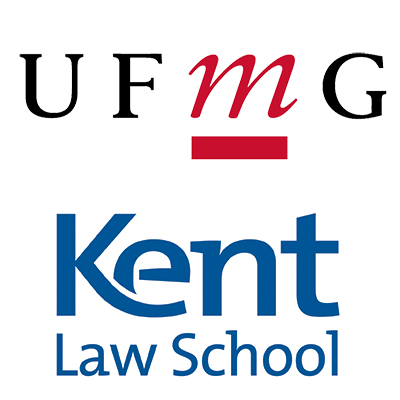A new partnership agreement between Kent Law School and a leading university in Brazil sets the seal on a long-term collaboration that will benefit academics and students alike.
The agreement has been signed this month with the Law Faculty of the Universidade Federal de Minas Gerais (UFMG) in Belo Horizonte.
Head of Kent Law School Professor Toni Williams said: ‘This exciting new partnership with one of South America’s pre-eminent law schools builds on existing research activities with Brazilian colleagues (such as the Bingo Project and Inclusionary Practices in Europe and Latin America) to strengthen further the Law School’s international reputation and create a host of new opportunities for our students and staff to study, learn and research in collaboration with academics and students in one of the world’s largest and most diverse societies.’
Five undergraduate law students from Kent have already benefitted from the partnership through participation in an inaugural five-week Winter School in August. The Winter School enabled students to enjoy an academic and cultural exchange visit with both UFMG and the Universidade Federal do Rio Grande do Sul (UFRGS) in Porto Alegre. Kent Law School students studied aspects of Brazilian law (constitutional law, private law, criminal law) and international legal studies as well as learning about Brazilian legal culture and taking lessons in Portguese.
In addition to providing opportunities for exchange visits between undergraduate and graduate students, and faculty members from both universities, the partnership is intended to be a long-term strategic collaboration, focused on research.
Professor Williams said: ‘Through this partnership we plan to hold joint research events, to publish collaboratively, and to develop new and existing research networks. We are also exploring the co-delivery of modules using shared materials and online interaction.
‘More generally, the partnership also contributes to our global objectives of strengthening the capacity of both schools to contribute to policy debates in Brazil and Europe, increasing the international exposure of the research conducted in both our schools and deepening understanding between EU and Latin American scholarly circles.’
There are several areas of shared research interests between the two law schools, including International Economic Law and Global Trade; Legal History, Discrimination and Human Rights; Criminal Law and the Human Body; Theories of Law and Justice; Theories of property; Transnational Legal ordering; Globalisation and Theories of the State; Law, Science and Technology; Globalization and Labour Regulation. Both schools will explore opportunities to develop additional collaborative research activities including funding applications, research groups and joint seminars.
UFMG is the largest federal University in Brazil. It is ranked amongst the top 11 Latin American universities and amongst the top 6 Brazilian universities by QS world rankings. UFMG recruits students by way of a very competitive admission national exam, which makes the university one of the most sought after by applicants.

